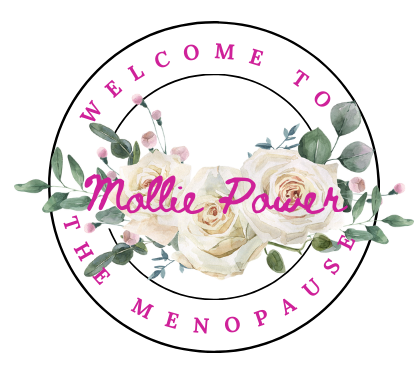
Menopause is not just a medical term; it is a phase of life that holds significance for many. At its core, it marks the time when a person’s menstrual cycles permanently cease, typically occurring between the ages of 45 and 55. This transition comprises several stages, starting with perimenopause, transitioning through menopause, and finally arriving at postmenopausal. Each stage comes with its own set of experiences and challenges.
The symptoms of menopause are varied and can affect individuals differently. Among them, hot flashes, night sweats, mood swings, and changes in sexual desire are frequently encountered. These symptoms arise from the body’s adjustment to fluctuating hormone levels and can significantly impact everyday activities and overall quality of life.
It is also essential to consider the psychological side of menopause. Many experience feelings of loss or a shift in their sense of self, which can lead to emotional distress. During this time, the support and understanding of friends, family, and peers prove invaluable. They can provide comfort and share in the journey, offering empathy and practical advice.
At this point, it bears stressing the need for a supportive environment. But beyond the warmth of friends and family, many find relief by turning to nature itself. The following section will explore the various herbal and dietary strategies that hold the potential to provide natural relief from the symptoms that come with this transformative stage of life.
The Power of Nature: Exploring Herbal and Dietary Remedies
The discomfort of menopause does not have to be shouldered silently. Instead, it can be eased by turning to the garden’s gifts. Phytoestrogens, (Phytoestrogens are naturally occurring compounds found in plants that have a chemical structure like oestrogen), mimic the body’s own oestrogen and may alleviate some symptoms of hormonal fluctuation.
These compounds are abundant in foods such as flaxseeds, soybeans, and whole grains. Including these in your meals could provide a natural buffer against those menopausal waves.
But there is more to the menopausal diet than just phytoestrogens. Calcium and vitamin D play critical roles in bone health, an important consideration as the risk of osteoporosis escalates after menopause.
Magnesium, meanwhile, is thought to improve sleep quality and mood – both of which can be disrupted during this time. Reliable sources include almonds, spinach, and dark chocolate – the latter offering a touch of indulgence along with its benefits.
Herbal supplements bring another layer of support, with options like black cohosh, red clover, and St. John’s Wort being popular for their potential to soothe hot flashes and improve mood swings.
Each person’s reaction to these remedies may vary, and it is crucial to consult with a healthcare provider before adding any new supplement to your regimen – especially if you are already taking other medications.
Maintaining balance is key, and integrating these dietary changes seamlessly into your lifestyle is the next piece of the puzzle. In the following section, I will outline the wider lifestyle modifications that, together with diet, can smooth your journey through menopause.
Holistic Harmony: The Role of Lifestyle in Managing Menopause
Embracing menopause does not mean you have to face it passively; your lifestyle plays an integral role in how you experience this transition. I want to emphasise the importance of exercise. Regular physical activity is not just about keeping fit; it is a powerful tool to regulate hormones and improve mood. Whether it is a brisk walk, a yoga session, or strength training, find an activity you enjoy and make it a regular part of your life.
Stress is another critical piece of the menopause puzzle. High stress levels can exacerbate symptoms like hot flashes and sleep disturbances. Techniques such as deep breathing, tai chi, or even hobbies that relax can be vital in your arsenal against menopause-related stress. Being available for these practices can calm the storm that sometimes seems to surge within.
Never underestimate the power of a good night’s sleep. Poor sleep can make menopause symptoms seem even more overwhelming. Create a sleep-conducive environment: dim the lights, cut down on caffeine, and establish a relaxing bedtime routine. A rested you is a more balanced you, ready to face the challenges of menopause head-on.
Finally, there is a lot to be said about mindfulness and meditation. Incorporating these into daily life can lead to increased self-awareness and a more profound sense of inner calm. Meditation has been shown to reduce the intensity of hot flashes and improve your quality of life. It is not just about finding peace in stillness; it is about gathering strength from serenity.
Partnering with Professionals: When to Seek Medical Advice

I know firsthand that embracing natural strategies can make a significant difference in how you experience menopause. But it is crucial to recognise when these methods might need to be supplemented with professional medical advice. If you find that your symptoms are persistently severe, disrupting your ability to enjoy life or affect your physical and mental health, it is time to reach out to a healthcare provider.
Doctors and menopause specialists can guide you through options like Hormone Replacement Therapy (HRT), which balances oestrogen and progesterone levels. The decision to use HRT should be made after a careful analysis of its risks and benefits. Your healthcare provider will consider your medical history, current health, and personal preferences.
For some women, alternatives to HRT may be more suitable. Non-Hormonal Medications:
Some women may prefer or need alternatives that do not involve hormonal treatments. Non-hormonal medications, such as selective serotonin reuptake inhibitors (SSRIs) or serotonin-norepinephrine reuptake inhibitors (SNRIs), are commonly used to manage symptoms like hot flashes and mood swings during menopause. These medications work on neurotransmitters in the brain and can help alleviate specific menopausal symptoms without introducing additional hormones into the system.
Physical Therapy:
Physical therapy can be beneficial for addressing symptoms related to musculoskeletal issues that may arise during menopause. This can include exercises to strengthen bones and muscles, improve posture, and alleviate joint pain. Physical therapists may also provide guidance on lifestyle adjustments to enhance overall well-being.
Other Medical Interventions:
Depending on individual health concerns and symptoms, various medical interventions may be explored. This could involve procedures, treatments, or therapies designed to manage specific menopausal symptoms without relying on hormonal manipulation. For example, for women experiencing issues related to urogenital health, there are medical interventions available to address those concerns.
It is important to note that the choice of treatment or intervention depends on the individual’s health profile, preferences, and the specific symptoms they are experiencing. Consulting with a healthcare professional is crucial to determine the most suitable approach, considering the woman’s overall health, medical history, and the severity of menopausal symptoms. This personalised approach ensures that the chosen alternative aligns with the individual’s unique needs and circumstances.
Individual Health Concerns and Symptoms:
Menopausal symptoms can vary widely among women, and their severity depends on numerous factors such as overall health, genetics, and lifestyle. Before recommending any intervention, healthcare professionals assess the individual’s health concerns and the specific symptoms they are experiencing during menopause. This evaluation is crucial for creating a personalized and effective treatment plan.
Various Medical Interventions:
There is a range of medical interventions available beyond hormonal treatments to address menopausal symptoms. These interventions encompass procedures, treatments, and therapies designed to alleviate specific issues without directly influencing hormone levels. This broader spectrum allows healthcare providers to tailor interventions to the unique needs of each woman.
Procedures, Treatments, and Therapies:
Medical interventions can include a variety of approaches. For instance, non-hormonal medications may be prescribed to manage symptoms like hot flashes or mood swings. Other interventions may involve lifestyle modifications, dietary changes, or alternative therapies to enhance overall well-being.
Addressing Urogenital Health Issues:
Medical interventions for urogenital health may include procedures or treatments to address concerns such as vaginal dryness, atrophy, or urinary incontinence. These interventions aim to improve the quality of life for women experiencing discomfort or challenges related to urogenital health.
Assembling a support team of health professionals, including dietitians, therapists, and other specialists, can ensure you are getting comprehensive care. Remember, the aim is not just to treat menopause, but to OPTIMISE your overall health and wellbeing. Your team can help you weave together natural remedies and medical interventions, tailoring a plan that works uniquely for you.
In closing, whether you are swimming smoothly through menopause or occasionally finding the waters choppy, it is okay to ask for help. Your journey is personal and unique, and there are abundant resources available to support you. With the right combination of natural strategies and professional guidance, you can achieve a sense of harmony and health through your menopausal years.
Your Story is the Star! Share Your Experience with Us!
Welcome to The Menopause
In the tapestry of stories, yours adds the most vibrant hue! After immersing ourselves in the latest post, we are not simply curious – we are excited to be part of your story.
Did a particular point hit close to home? Or do you have a unique take that is waiting to be unveiled? Let us turn this space into a treasure trove of diverse experiences.
Do not be shy—drop a comment below and let us kick off a conversation that resonates with authenticity. Your voice is the melody in our symphony of stories, and we cannot wait to hear your insights!
Here is to sharing, connecting, and weaving our narratives together!
Cheers to your story, beautifully told!
